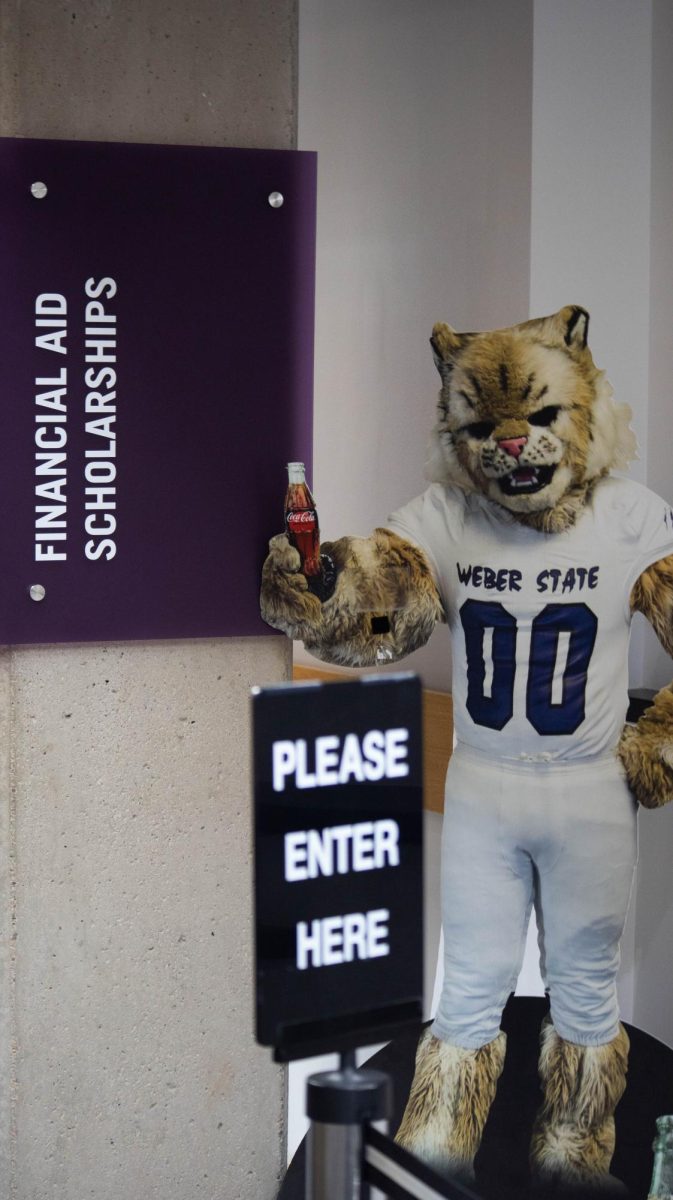Weber State University’s Peer Mentor program is a place for anyone and everyone to get help with navigating life at Weber. There are peer advisors and mentors present to assist with any help a student needs.

The program was started by Debbie Cragun and Noel Wilkinson. Cody Brown, who is an advisor with the Nontraditional Student Center, is also a former peer mentor. He became an advisor in January of 2019.
As an advisor, Brown oversees all Davis Campus services at the Nontraditional Student Center and helps students, similar to the mentors.
“Some students come to campus very lost in their first semesters,” Brown said. “For me, the biggest goal is to help students find answers and navigate life in Weber.”
The position of the peer advisor, according to Brown, is the same as the peer mentors, except the advisor is also there to help manage the peer mentors and create training for them. Peer mentors are also there to help other nontraditional students feel more at home in the center.
“They will help students with study tips, register for classes, fill out FAFSA information, guide them through CatTracks and Canvas functions and apply for scholarships,” Brown said.
There are currently only two mentors in the Nontraditional Student Center on the Weber campus, Kristalyn Garfield and Trisha Beckstead, but there are usually up to four. The number changes as mentors graduate.

Garfield and Beckstead are sisters who decided to go back to Weber for schooling in the spring of 2018. They are currently seniors and have both mentored around 50 students over their time in the program.
The two explained their jobs as peer mentors, reasserting Brown’s comments. “Sometimes they just need to vent or someone to talk to. They’re just looking for that friend to confide in, and we can provide that,” Beckstead said.
Beckstead had explained they currently have under 10 students who come in for mentoring, mainly due to the COVID-19 pandemic. “There are usually more people in the beginning and end of the semesters because that’s when people need the most help,” Beckstead said.
A lot of people come in after school and work and haven’t had anything to eat all day. They provide these people with quick food they can eat to get through class while also mentoring them.
“A part of our goal is to help people succeed, and that also means creating a comfortable environment for them as well,” Garfield said.
Sharon Barber, a 77-year-old sophomore who will be acquiring her associate’s degree, has been going to the program for five years now.
“The program gives me so much more self-confidence. They not only help you, but they build and encourage you,” Barber said.

She confirmed there have been fewer people due to the current pandemic, but says every person she has met in the program recently feels the same way as her about it.
“The mentors have really busy schedules, but still find a way to put everyone else first and make you feel comfortable,” Barber said.
The Peer Mentor program office is located in the Student Services building, room 160, and the Nontraditional Student Center is located in the Shepherd Union building, room 322. Both offices encourage students to ask questions if they are curious about becoming a mentor or being mentored.




















